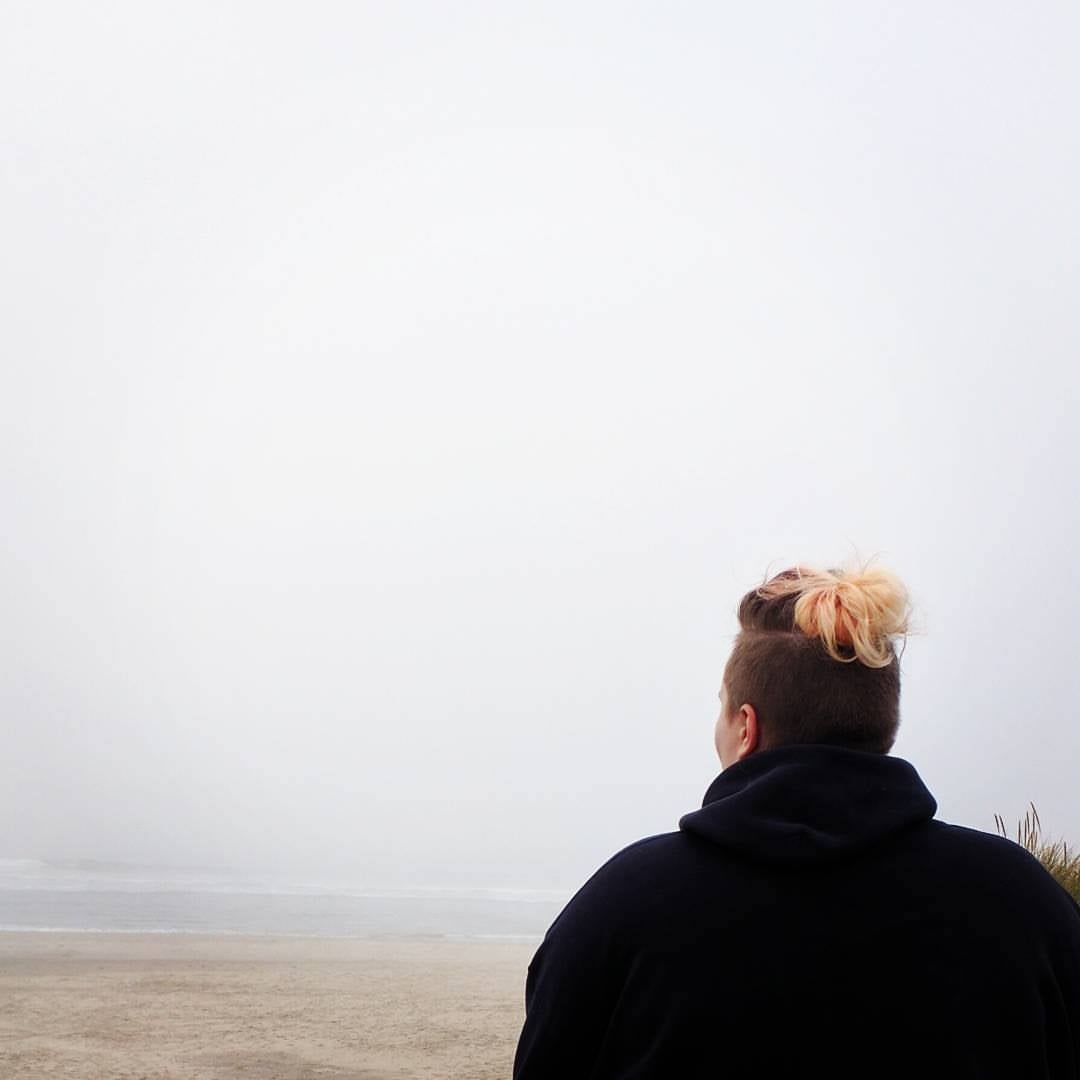Submissions for the Creative Non-Fiction category are open to one work of creative nonfiction completed for coursework in the last calendar year. Submissions should not exceed 20 pages. Rebekah Gunderson wrote the 2nd place submission in the Creative Nonfiction Category for the 2019 President’s Writing Awards.
About Rebekah

I grew up in Hillsboro, Oregon and moved to Boise in 2005. This May I’m graduating with a Bachelor of Arts degree in English with an emphasis on writing and rhetoric. I love writing because it gives me the ability to express my creativity, process my overactive imagination, and share my experiences with the world.
When I’m not studying, I’m watching horror movies, writing uncomfortably experimental poetry, and reading #QueerLit. I also enjoy ranting about astrology and overusing the wheat emoji. In the future I plan to continue writing and look for a good job to support my tastes in expensive cheeses.
Ammophila
Near the top of the jetty in South Beach sits a white, black, and red sign installed by the U.S. Army Corps of Engineers. It reads “DANGER: Jetty Structure NOT For Public Use… Proceed at Your Own Risk.” My parents and I have developed a habit of climbing these large rocks that protect the coastline from the tides. They weren’t built for recreation, but it’s an attractive risk for tourists.
It’s dangerous to get caught out there at the wrong time – people have died on the jetties. There are sinkholes and caverns, and the ocean is unpredictable even with knowledge of the tide and the weather. In November 2010, when skies were raging in a furious storm, a couple from Portland walked out on the tip. The high waves swept them away and they drowned. Even when the waves aren’t a problem, reckless and impatient climbers can get their legs stuck in large gaps between the rocks. Some of them are bigger than most people. The jagged black masses cut out into the water, their sides slippery with saltwater. “Boulders” would be a more accurate description.
There’s a small path at the top of the jetty. It wasn’t intended for public use – only for workers to have access for repairs. That doesn’t stop most people. That doesn’t stop us. The jetty is a popular spot to fish, sunbathe, picnic, and explore. After so many warnings, after so many tragic accidents, it’s not wise… but the lure of the ocean easily possesses. It’s a special kind of hypnotism. The view draws climbers in.
From the top you can look out over the ocean and watch the boats coming in, cutting through the fog. You can look down at your feet and see countless shimmering pools of water deep in the darkness. You can see a rainbow of sleeping starfish wrapping their chunky little arms around themselves. The caverns are fathomless and cold and more spellbinding than fields of flowers.
Every summer we can afford it, my family drives to the Oregon Coast. My parents started doing this years before I was born. Back then, they traveled everywhere. They liked to take me along after they had me, strapping me securely on my dad’s back as they hiked through mountain trails and explored west coast beaches. For the first ten years of my life, we lived in the Portland metropolitan area in a city called Hillsboro, two and a half hours from our favorite campground. The journey is longer now. From Boise, the drive is eight hours and fifty minutes. The transition from dull brown foothills to wet green forests is an even sharper contrast.
South Beach State Park is a campground stretching several miles down the coast. We usually rent a campsite here for about a week or two. From camp, it’s an easy hike directly to the ocean. Winding trails cut through the dense mass of trees separating the park from the beach.
This beach is often cold and sometimes cruel. The sand is more compacted and harsh closer to the water. There are tiny sharp rocks everywhere, and sometimes garbage, so you can’t really walk around barefoot unless you’re near the sand dunes. The sky is often gray and cloudy, the wind is severe, and thick knit caps and raincoats are standard beachwear. It’s gloomy and damp and a beautiful place to fly a kite.
I like to stroll along the water at South Beach in the early morning or late evening, when the sun’s just coming up or going down. When it’s just me and the white noise of the ocean, time always seems to slow to a crawl. I look back at the swaying ammophila, thin pea green stalks of seagrass poking out of the sand, and I look forward at the rolling waves. I suck in the salt in the air.
It’s difficult to breathe facing the vastness of the ocean. It seems to stretch out every limit, beyond my sight, a muted pastel blanket.
It’s more difficult to breathe when I’ve been chasing after my dog to keep him from eating dead jellyfish. We brought him to the coast for the first time two summers ago and he was a boundless mess of limbs, running up and down the beach, poking his nose into the algae in tide pools.
When he’s not frothing at the mouth from excitement, he looks out at the waves. When I’m not watching the ocean, I watch him watch the ocean. These are his quietest moments. In muffled early morning silence, under bitter orange sunsets, he’s attentive to the smallest noise.
I wonder if he hears it too. That siren lure. That sinkhole danger.